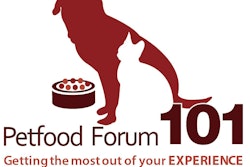KetoNatural Pet Foods (KetoNatural), maker of the world’s first line of low-carbohydrate, ketogenic dry pet food products, announced on July 26 that the company’s founder and CEO, Daniel Schulof, has issued a letter demanding that the Journal of the American Veterinary Medical Association (JAVMA) retract a controversial article concerning the nutritional causes of a rare canine heart disease called dilated cardiomyopathy (DCM). The official retraction letter can be found here and was sent to JAVMA’s Editor-in-Chief this morning. It was cosigned by more than 200 pet food industry experts, health care professionals, and veterinarians.
The letter demands that JAVMA immediately retract a December 2018 article entitled “Diet-Associated Dilated Cardiomyopathy in Dogs: What Do We Know?” on the basis that the report repeatedly makes inaccurate claims that suggest pet food products the article’s authors call “BEG diets” (“boutique,” “exotic-ingredient,” or “grain-free”) are associated with canine DCM. Additionally, Schulof and his co-signatories assert that the misleading article evaded the peer-review process by misrepresenting itself as an op-ed.
“The claim that ‘BEG diets’ are associated with higher rates of canine DCM is baseless and lacks proper scientific study,” said Schulof. “There’s no scientific evidence that DCM rates have increased in recent years. And furthermore, there’s no scientific evidence that any type of pet food product is associated with higher rates of diagnosis. Through the retraction of this article, we hope to correct any potential misunderstanding on the part of the veterinary and pet owner community about the etiology of DCM.”
Pet health and safety are at the core of KetoNatural’s values. The company was founded on the belief that dietary carbohydrates are responsible for chronic disease epidemics in America’s pet populations and rejects the notion perpetuated by legacy pet food companies that carbohydrate-rich products are healthy and safe for our pets. Schulof explains, “there is a large evidentiary record demonstrating that carbohydrates are more fattening for dogs and cats than other nutrients. But carbs are also cheap. So Big Kibble companies have worked very hard to disguise the true science of obesity and the risks of carbohydrate consumption from the veterinary community in an effort to preserve the status quo.”
Schulof sees a similar pattern emerging in the Food and Drug Administration’s investigation of canine DCM.
“DCM is a real disease, but it’s also an incredibly rare one. A pet owner is far more likely to be struck by lightning than to have a dog diagnosed with DCM, regardless of what kind of pet food the animal eats. Thanks to public records investigations we’ve conducted over the past seven months, we’ve learned that the three veterinarians at the heart of the FDA’s DCM investigation have all benefited handsomely from Big Kibble’s financial largesse. They have significant conflicts of interest with the very same companies that stand to benefit the most if the public comes to believe that ‘BEG diets’ are going to give their pets a deadly heart disease.”
Copies of the retraction demand letters and supporting evidentiary materials can be downloaded at the website www.veterinaryintegrity.org.














